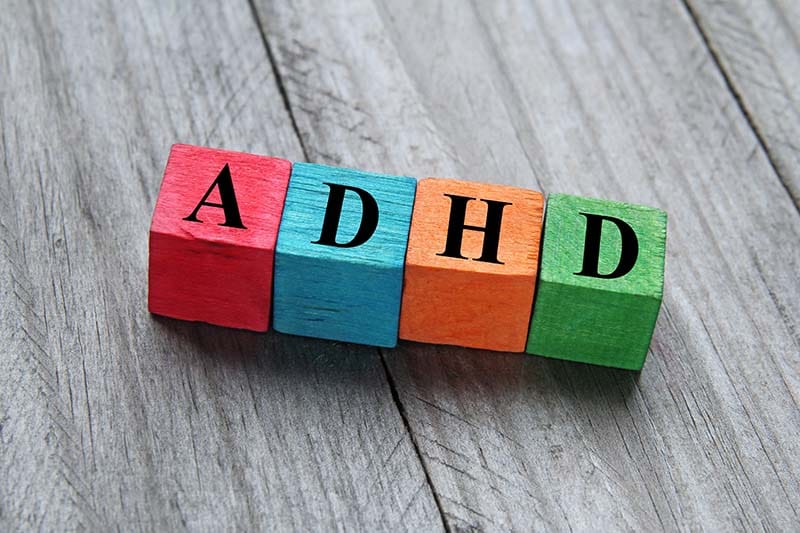How does ADHD affect hunger and fitness, and why does it sometimes lead to challenges with eating or exercise routines? Not everyone with ADHD experiences this, but it’s common enough that many people notice their hunger cues feel less predictable. Some people forget to eat and then overeat later, while others feel constant cravings and struggle with portion control. Fitness can also feel harder to maintain because sticking to routines and long workouts can be more difficult for some with ADHD. Yet movement is one of the most powerful tools for managing energy, mood, and even appetite regulation.
This blog looks at how ADHD impacts hunger and exercise, why strict food rules often lead to binge and restrict cycles, and what practical steps can make eating and fitness easier to manage.
ADHD and hunger
ADHD does not just affect focus and organisation. It can also have a big impact on hunger. Some people find themselves forgetting to eat all day and then overeating at night. Others feel constant cravings and struggle with portion control.
The brain’s dopamine system plays a role here, as food can feel like a quick way to boost energy and motivation.
This means that hunger with ADHD is not just a matter of willpower. It is about how the brain works, and it often needs a different approach to eating and routine.
If you’re looking for foundational habits around ADHD and eating, check out my earlier post on ADHD and hunger.
ADHD and fitness
For many people with ADHD, sticking to exercise can feel harder because distraction and boredom get in the way. At the same time, fitness is one of the most helpful tools for managing ADHD. Movement boosts dopamine and other brain chemicals that improve mood, focus, and energy.
The key is to make fitness work for you. Short sessions can be more effective than aiming for long workouts that you never get round to. Choosing activities you enjoy makes it easier to stick with them. Some people benefit from accountability, whether that is through a personal trainer, a training partner, or even an app that tracks progress.
When fitness becomes part of your routine, it supports not only physical health but also mental balance and appetite regulation.
ADHD, food rules and the binge restrict cycle
It’s common for ADHD brains to lean towards black and white thinking, which can sometimes show up as strict food rules – cutting out certain foods, or labelling them as good or bad. While this might feel like a way to take control, it often leads to the binge restrict cycle.
You restrict for a while, then when you give in, you eat more than planned, and guilt sets in. This can feel like failure and trigger even stricter rules the next time. For ADHD brains that already struggle with impulse control, this cycle can feel endless.
A better approach is to allow all foods in moderation. Instead of banning things like biscuits or crisps, include them in small amounts alongside balanced meals. This removes the pressure and makes food less of a battle.
How I help my clients build balance
In my online weight loss and fitness coaching, I work with people who are tired of swinging between extremes. For many with ADHD, routines can feel especially hard to set up, which is where support makes a difference. My role is not to replace medical advice or medication, but to help people find practical ways to eat regularly, enjoy food without guilt, and move their bodies in ways that feel achievable.
Rather than cutting out whole food groups or chasing strict rules, I guide clients towards balance, variety, and creating a routine they can stick with. The focus is on simple, realistic steps that build confidence and help weight management feel sustainable in the long run.
Practical tips for ADHD, hunger and fitness
Living with ADHD may make hunger and fitness feel harder to manage. Distraction, impulsivity, and difficulties with routine often get in the way, and food choices can sometimes feel more reactive than planned. The good news is that with a few practical strategies, it is possible to feel more in control and build a healthier routine:
Eat regularly
One of the biggest challenges for people with ADHD is remembering to eat at consistent times. It is very common to get absorbed in something and then realise hours have passed without food, which often leads to overeating later. Try setting alarms or calendar reminders so meals do not get forgotten. Having a loose structure like breakfast, lunch, dinner, and one or two snacks can help stop energy crashes and reduce cravings.
Add protein and fibre
Foods that are high in protein and fibre keep you fuller for longer and provide more stable energy. This is particularly helpful if impulsive snacking is a problem. Examples include eggs, yoghurt, chicken, beans, lentils, whole grains, fruit, and vegetables. A simple way to check your meals is to ask, “Where is the protein and where is the fibre?” If both are there, you are setting yourself up for steadier hunger levels.
Choose exercise you enjoy
Sticking to a routine is much easier if the activity is something you look forward to rather than dread. If the gym feels repetitive, try cycling, swimming, or fitness classes that offer variety and stimulation. For some people with ADHD, changing scenery or mixing up activities helps to keep interest high. Even short bursts of movement such as a 10-15 minute walk or bodyweight exercises at home can add up across the week.
Use accountability
ADHD can make it harder to stay consistent, so building in accountability makes a big difference. This could be checking in with a coach, going with a friend, or simply using a visual tracker like a calendar where you tick off workouts or meals. Seeing progress in a tangible way can provide motivation and reduce the temptation to give up when things feel overwhelming.
Avoid extreme rules
Rigid food rules often backfire, especially if you are already managing the impulsivity that may come with ADHD. Allowing all foods in moderation takes away the pressure and reduces the risk of bingeing after periods of restriction. Rather than banning foods outright, aim to build a base of balanced meals and then enjoy treats without guilt. This makes it easier to sustain progress without the all-or-nothing cycle.
Prepare ahead when possible
Planning can be tough with ADHD, but having some food ready can save you in moments when energy or focus is low. This does not mean cooking elaborate meals. Simple options like boiled eggs, chopped fruit and vegetables, cooked chicken, or microwaveable grains can make it easier to put together a quick, balanced meal instead of relying on takeaways or snacks.
Keep it visual and simple
Visual cues are powerful for ADHD brains. Keep healthy snacks visible on the counter or at the front of the fridge, and put less nutritious options out of sight. Colour-coded meal boxes, sticky notes, or whiteboards can also act as reminders and reduce decision fatigue. The simpler your system, the more likely you are to stick with it.
When to seek professional help
If food or exercise feels overwhelming, or if binge restrict cycles are affecting your wellbeing, it may be time to reach out for support. Sometimes this can mean working with a coach like me to build healthier routines. Other times it may require speaking to a doctor or a mental health professional, especially if the challenges are linked to ADHD medication or signs of disordered eating. Getting the right support can make a big difference.
FAQs
Does ADHD make it harder to lose weight?
Yes, ADHD can affect hunger, focus, and routines, which all play a role in weight loss. But with the right strategies it is still possible.
Can fitness help with ADHD symptoms?
Yes, exercise boosts dopamine and other brain chemicals that support mood, focus, and energy, which can reduce some ADHD symptoms.
Why do some people with ADHD struggle with binge eating?
Impulsivity, black and white thinking, and irregular eating patterns can all contribute to binge eating.
What is the best diet for ADHD and weight loss?
There is no single best diet. A balanced approach with regular meals, protein, fibre, and flexibility is usually more sustainable.
Can exercise replace medication for ADHD?
Exercise can help a lot but it is not a replacement for medication if that is needed. The best approach is often a combination of tools. Always discuss medication with your doctor.
Do GLP-1 injections help with ADHD and weight loss?
Some people with ADHD are prescribed GLP-1 medications, which can change hunger cues. They may help with appetite, but they are not a replacement for healthy habits, fitness, and nutrition. Whether or not you take them, building routines and balance is what supports long term results. Again, always discuss medication with your doctor.




